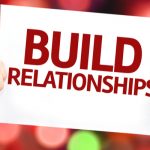Professional and Personal Development through Reflective Practice
I first consciously started to focus on Reflective Practice when I was in my master’s degree program. I’m a person who thrives on being “busy”, always in action. We could probably dive deep to understand why this is, but that’s not the purpose of this post.
When you are constantly in action, or in “doing” mode, it’s difficult to fully learn from experience. There are many forms of “reflection” considered reflective practice. For instance, in certain roles in organizations, I spent time debriefing or holding “post-mortems” after completing a project. Where I felt these were helpful practices, I feel it would have been even more impactful if additionally, I spent time reflecting on my own actions; rather than how the time was spent reviewing what went well and what we could do differently to improve how we complete a project in the future. Though helpful, as said above, in these scenarios, I, and others, tended to be so ready to move on to what was ahead of us, that the learnings were not as deep nor carried forward as well as they could have been. As I write this, what comes to mind is that we were following an expected process, rather than truly being mindful of the need to learn from the reflective practice.
What is Reflective Practice?
There are many definitions of Reflective Practice. Some important aspects to focus on as you begin to build your reflective practice is:
- Stop, reflect and get curious about your actions, behaviors and experiences as an opportunity to learn.
- Be willing to deeply explore and conduct a self-assessment.
- Commit to develop both professionally and personally.
Part of the work I do with my clients is to help them increase their self-awareness. Making reflective practice part of one’s daily routine helps one to gain self-awareness in addition to many additional benefits including:
- Building one’s ability to get curious, ask questions, and not make assumptions.
- Gain insight into actions and behaviors.
- Notice patterns that continue to show up.
- Be less reactive.
- Increase ability to be at conscious choice.
- Understand that intuition is a helpful guide.
- Improve decision making.
- Achieve optimal results.
Organizational Culture
For an organization that wants to be a learning organization, reflective practice is an essential ingredient. Reflective practice is not only beneficial for the individuals who commit to and engage in this practice, but to the organization as a whole to drive better results.
It’s important for individuals to resort to their own reflective practice, i.e. doing this on their own. And, there are many ways to learn from reflective practice with others. For example, when I used to co-mediate, my co-mediator and I would reflect on our mediation session and not only ask ourselves questions, but ask each other questions as well. It was a time for us to learn with each other, from each other, and from our own selves. Similarly, you can work with a mentor to gain insight through reflection, and with your team! There are many opportunities. What’s important is to be intentional and make it part of the culture. And remember, learning can be fun, and reflective practice is one way to have fun.
I partner with organizations to help their leaders and teams to achieve optimal results. Interested in learning more and exploring how you can become more intentional about your own or your company’s reflective practice? Let’s connect.
“Without reflection, we go blindly on our way, creating more unintended consequences, and failing to achieve anything useful.” – Margaret J. Wheatly






